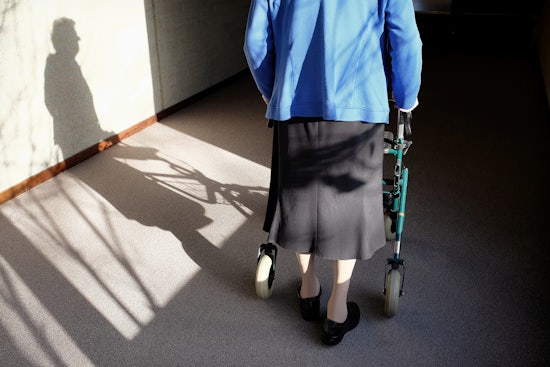More home care packages as Government commits $662m to aged care
An additional 10,000 home care packages across all levels will be
made available as part of the Government’s recently announced $662
million package to support older Australians.

The Government has announced ‘a substantial funding boost’ to support older Australians (Source: Shutterstock)
The funding boost, announced ahead of the first Royal Commission into Aged Care Quality and Safety hearing in Adelaide today, will also include $320 million for residential care, equating to approximately $1,800 per permanent resident over the next 18 months while the Government considers a longer-term funding approach.
“We need to have a culture of respect and care and that’s why I announced the Royal Commission into Aged Care,” Prime Minister Scott Morrison says.
“These (home care) places give older Australians the choice about how and where they want to live their lives. Older Australians have worked hard all their life, paid taxes and done their fair share, and they deserve our support.”
The new investment aims to help speed up access to home care and ensure older Australians receive safe, high-quality services when and where they need them.
It will increase aged care access and further strengthen safety, quality and transparency and allow older Australians to live in their home longer and stay independent.
The funding also includes:
- A $4.2 million mandatory national aged care quality indicator program
- $7.7 million to enhance the safety, quality and integrity of home care
- $35.7 million to increase home care supplements for dementia and cognition and veterans
- A $4.6 million trial of a new residential care funding tool to replace the Aged Care Funding Instrument (ACFI)
- A new $7.4 million business advisory service for both residential and home care providers to help them improve their operations and share best practice.
Council of the Ageing (COTA) Chief Executive Ian Yates, who is addressing the Royal Commission today, says COTA is pleased the Government is continuing to pursue aged care reforms while the Commission is underway.
“While more packages are needed to achieve our target of a maximum three months wait, this is another significant step forward that will have a real impact on waiting times for people who need support and care to stay at home safely,” he says.
“While 10,000 new home care packages is short of what we need, it is a substantial funding boost for a vital pillar of our aged care system that enables people to age at home instead of being prematurely forced into residential aged care when that’s not what they need or want,” Mr Yates says.
Mr Yates welcomes $320 million in extra funding for residential aged care providers, however he expressed concern that it has not been tied to better staffing.
“It is disappointing there are no conditions attached to require providers to use the additional funding to increase staff numbers and/or support workforce training and development programs that will lift the standard of care in Australian nursing homes.”
“While inadequate funding is never a defence for unsafe practices, it is an issue in achieving the highest level of quality care to ensure the dignity, respect, autonomy and citizenship of all nursing home residents.”
National Seniors Chief Executive Officer (CEO) John McCallum, who is also speaking at today’s hearing, says the government has to “stop the drip-feeding of funding.”
“We know from research here and overseas that shorter wait times for home care packages are associated with improving the life expectancy of older people and their ability to remain in their own homes,” he says.
“But people are dying before their time and that has to be our focus.”
“Only a new funding model will eliminate these massive waiting lists, especially given demand will only grow with our ageing population.”
Leading Age Services Australia Chief Executive officer (CEO) Sean Rooney says the announcement of funding to trial a new funding tool acknowledges that the current approach is inadequate.
“It is the core funding arrangements for the sector, and how the funding tool is able to respond to the true cost of care, that has been our biggest ongoing concern,” he says.
Mr Rooney says any trial should also include research on staffing models to ensure a better understanding of the mix of nursing, personal care, allied health and other staff that will best meet the growing and changing needs of older Australians in residential care.
“We all want a safe, high quality and high performing aged care system. Older Australians need it and older Australians deserve nothing less.”






















